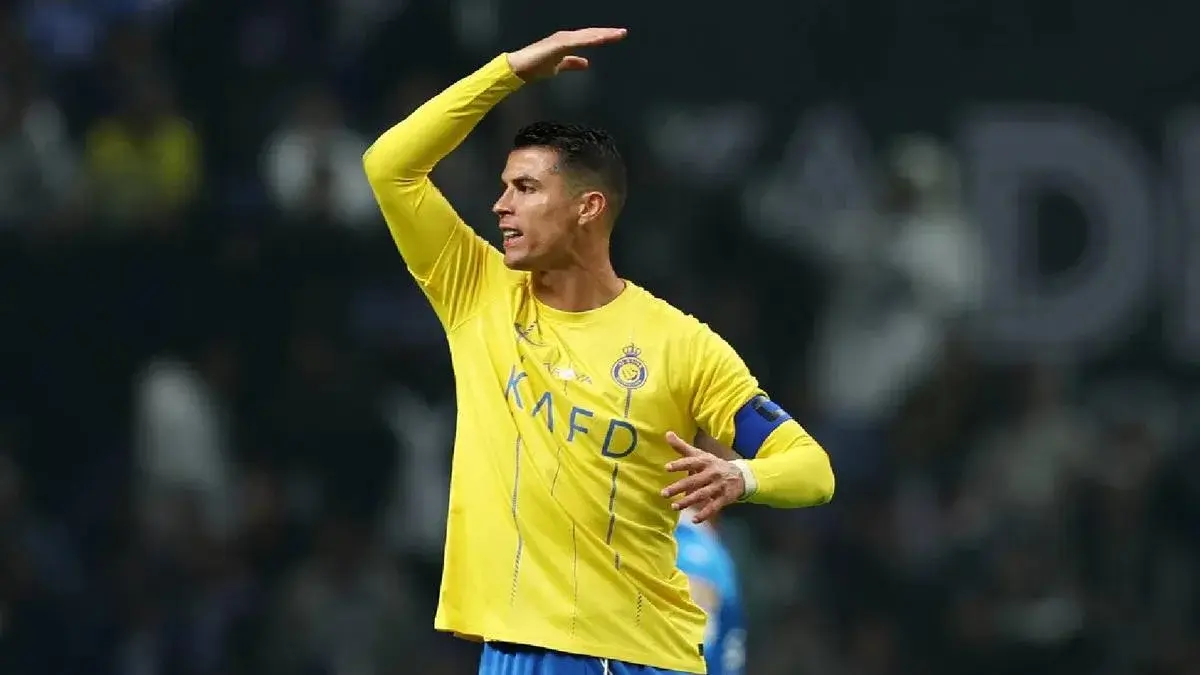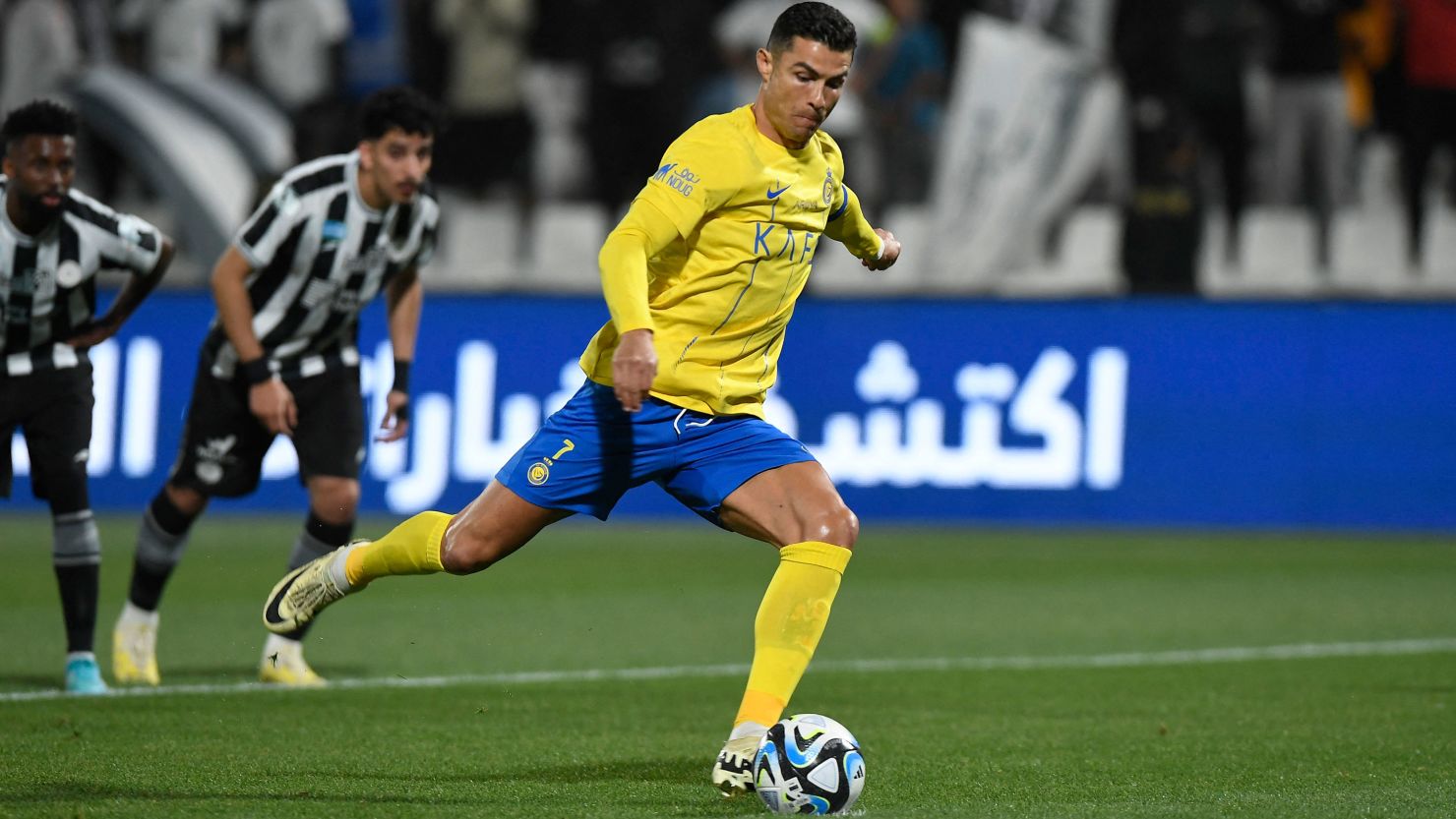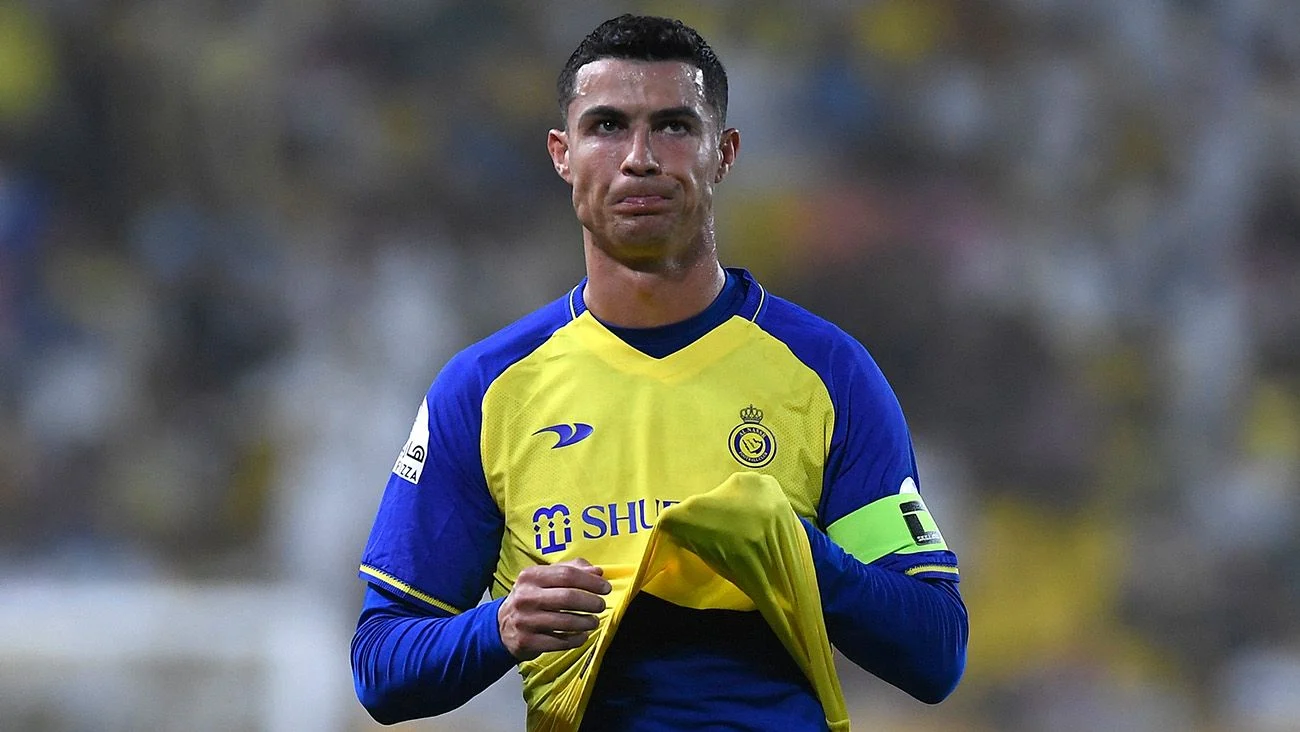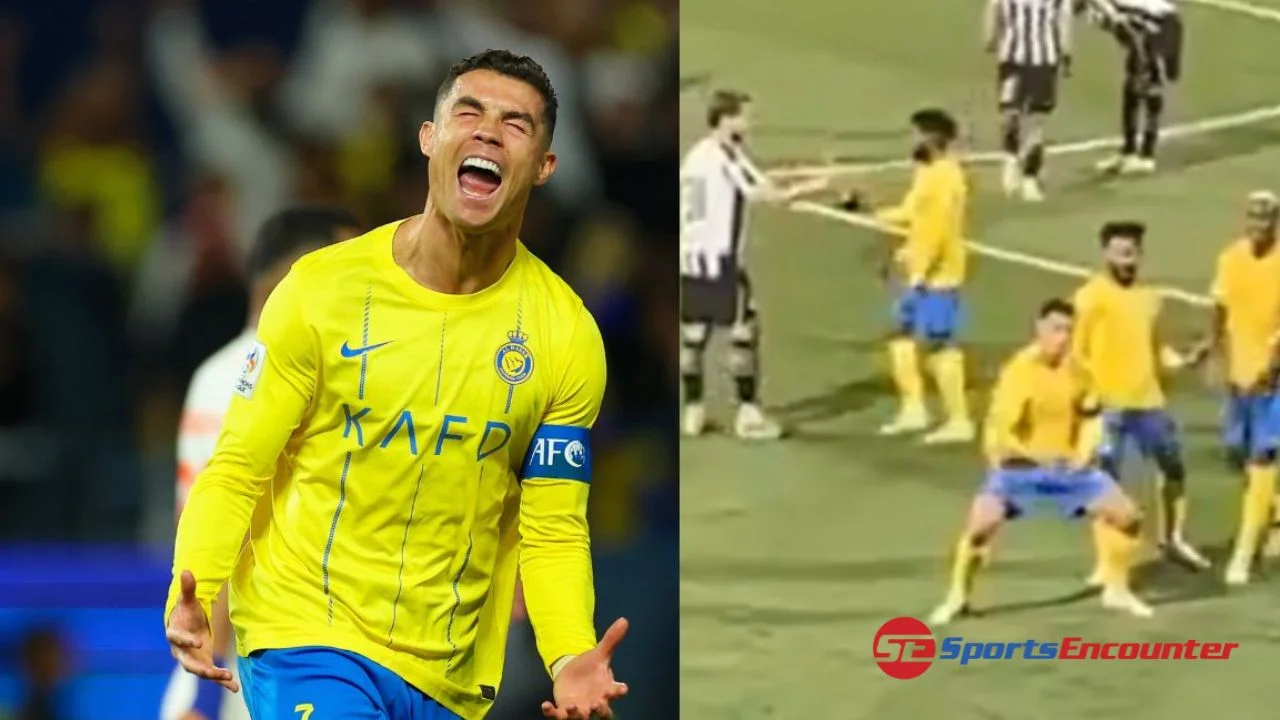In a recent unfolding within the world of football, Cristiano Ronaldo, the luminary of the sport and Al-Nassr’s frontman, has found himself at the center of a contentious debate. This was sparked by an incident involving Ronaldo and a one-game ban imposed on him, following what has been described as obscene gestures towards fans of Al-Shabab. These fans were chanting the name of his long-time rival, Lionel Messi, during a crucial match that saw Al-Nassr clinch a narrow 3-2 victory.

The ban and the accompanying $6,800 fine, which resulted in Cristiano Ronaldo missing Al-Nassr’s subsequent 4-4 draw against Al-Hazm, has ignited discussions far beyond the immediate implications for team line-ups and match outcomes. It has prompted a deeper analysis into the psychological makeup of elite athletes, their handling of pressure and adversity, and the broader implications of such high-stakes environments on their mental health and behavioral responses.
The Psychology of Competition: Ronaldo’s Battle Beyond the Field
Filipa Torrinha Nunes, a respected Portuguese psychologist, provided a nuanced perspective on Ronaldo’s actions, suggesting they stem from a deeper, perhaps more ingrained, struggle with accepting failure. Speaking on the Portuguese program Alo Portugal, Nunes remarked, “Cristiano Ronaldo has a bad losing streak. He always has since he was a kid. There is a good side and a bad side. On the one hand, it makes you be very intense in your achievements and be the best in the world. Which is his case, is perseverance.”

However, Nunes also highlighted a critical vulnerability in Ronaldo’s psychological armor, “But on the other hand, he can’t fit in that sometimes he doesn’t run well, that sometimes he is insulted, that sometimes there are fans who won’t like him, that one day his career will end. I believe that Cristiano Ronaldo is not prepared for the failures in life.”
Ronaldo’s Defense: A Reflection of Competitive Spirit or a Moment of Folly?
In his defense, Ronaldo insisted that his gestures were merely expressions of joy and victory, customary in the competitive spirit of European football. “I respect all clubs. And the joy after the shot expresses strength and victory, and it is not shameful. We are used to it in Europe,” Ronaldo stated, as reported by talkSPORT.
This incident and Ronaldo’s subsequent justification have sparked a broader conversation about the nature of sportsmanship, the psychological toll of high-level competition, and the fine line between passionate celebration and unsportsmanlike conduct.

The Impact of Cristiano Ronaldo’s Absence and the Road Ahead
Cristiano Ronaldo’s absence in the 4-4 draw against Al-Hazm was palpably felt, underscoring his pivotal role in Al-Nassr’s campaign this season. With 28 goals and 11 assists across 29 appearances, Ronaldo’s contribution to his team’s performance is undeniable. His return for the AFC Champions League quarter-final match against Al Ain is eagerly anticipated, not just for his on-field prowess but also for the potential redemption narrative it represents.

Conclusion: A Moment of Reflection for the Sporting World
This episode serves as a poignant reminder of the pressures and expectations placed upon the shoulders of the world’s most celebrated athletes. It underscores the complex interplay between mental resilience, competitive spirit, and the ever-watchful eyes of the public and media.
In an incident during a #Saudi League match between Al Nassr and Al Shabab, Cristiano #Ronaldo, the renowned Portuguese footballer, has stirred controversy by making provocative gestures towards the crowd. Ronaldo's actions have led to a two-match suspension imposed by the Saudi… pic.twitter.com/wzwAgWdN3T
— KUWAIT TIMES (@kuwaittimesnews) February 27, 2024
As Cristiano Ronaldo prepares to step back onto the pitch, the incident invites fans, players, and the sporting fraternity at large to reflect on the values that define sportsmanship and competition. It’s a call to consider not just the physical and tactical aspects of sports, but the psychological battles that rage within, often unseen but profoundly impactful.

